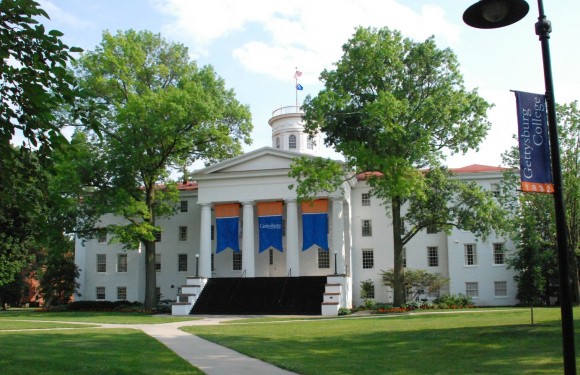Opinion: Time to Communicate with the Changing Times
By Nick Rollo, Guest Columnist
Gettysburg College prides itself on its liberal arts education. Students engage in a rigorous curriculum focused on critical thinking, creativity, and informed action. This liberal arts standard has been the framework of the college’s outstanding majors and minors available to students, including some modifications, since the college was founded in 1832. However, times are changing and Gettysburg should change with them with regard to one specific area of study: Communications.
Whereas liberal arts are the cornerstone of the college’s very sound academic philosophy, like any principle it needs to be viewed in the context of the current society. Specifically, the advancement of technology has struck an interest in today’s prospective students, and social media is a key feature of this advancement. Prospective students are using social media platforms, like Facebook, Twitter, and Instagram, to obtain news, keep up with cultural trends, and post statuses and pictures for their own enjoyment.
From the classes offered, Gettysburg College’s liberal arts education teaches communications through traditional methods, such as writing and public speaking. These are timeless in their value and the college must never deviate from its high quality teaching of these skills. However, Gettysburg College must supplement these teachings with the more current methods, which may not be as respected in academia, but are critical to students who are seeking careers in the communications field. By not doing so, the college is putting itself at a disadvantage in attracting prospective students.
According to Vice Provost Jack Ryan, the administration views communication studies as a professional education, which does not fall under liberal arts. But, Ryan does see the benefits of offering this study.
“Technology today has transformed communication into the digital medium of television, online columns, and podcasts,” said Ryan, Dean of Arts and Humanities. “Offering a communications major would be ideal for students interested in this field, but could be a difficult task.”
Ryan believes that the most feasible plan for a communications major would be for a student to create it as an individualized major. This forces students to combine coursework and other experiences from at least two departments or fields with other experiences, such as internships and off-campus study. The popularity of students declaring this major would decide whether it would become an official major.
Gettysburg College’s Communications and Marketing Office currently offers student internship opportunities that would complement the communications skills developed in an individualized major. The internship program, which includes a variety of positions from writing to design to videography, provides students with practical, real-world experience helping to advance the brand of a top liberal arts college.
Other liberal arts schools have taken a more hands-on approach by creating majors that study communications. For example, Washington and Lee University offers a Journalism and Mass Communications major. According to their website, this department combines deep understanding in the liberal arts and sciences with solid experience in research, analysis, and clear communications. Some of the introductory courses are Introduction to Mass Communications, Beyond Google and Wikipedia: Finding and Evaluating Information Sources in the Digital Age, and Introduction to Digital Journalism.
Each of these courses have a foundation of studying communications in today’s technological world.
The program at Washington and Lee University has been met with much success. Recent graduates find that courses within their Journalism and Mass Communications major have demonstrated how modern technology can impact communication across a variety of different mediums.
Students at Gettysburg also have an appetite to study communications. Members of the Class of 2019 have commented that many of their courses touched on themes of effective communication, but desire a more specialized course offering. The power and relevance of social media make this a popular belief among many students who use social media to follow news, athletics, and personal entertainment.
Gettysburg College is a prestigious liberal arts college that has achieved tremendous success by maintaining its identity. This is not to suggest that it should abandon its core principles when it comes to majors and minors. Rather, it needs to tweak its curriculum to account for changes in society, similar to other liberal arts colleges, like Washington and Lee University, and offer its students the best of all worlds.

